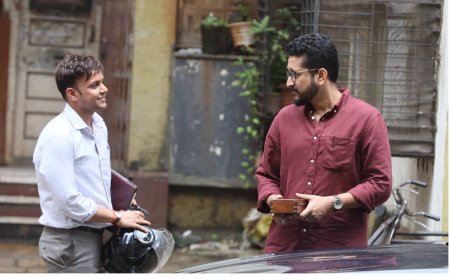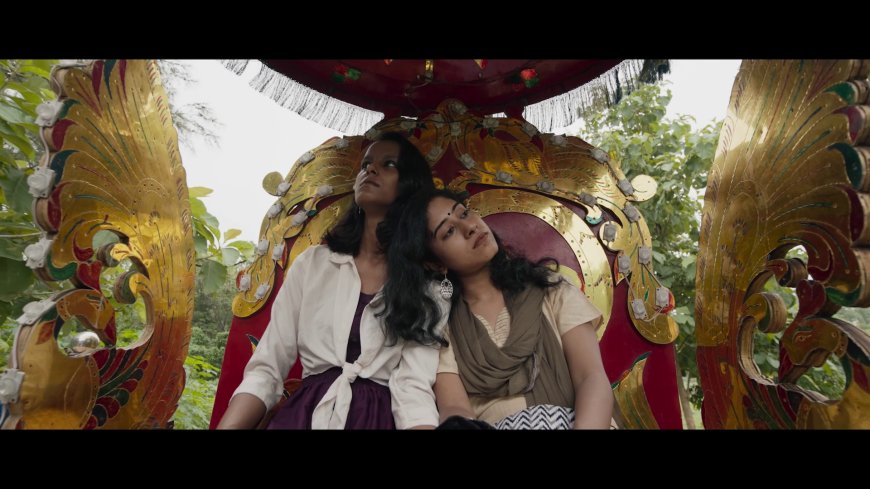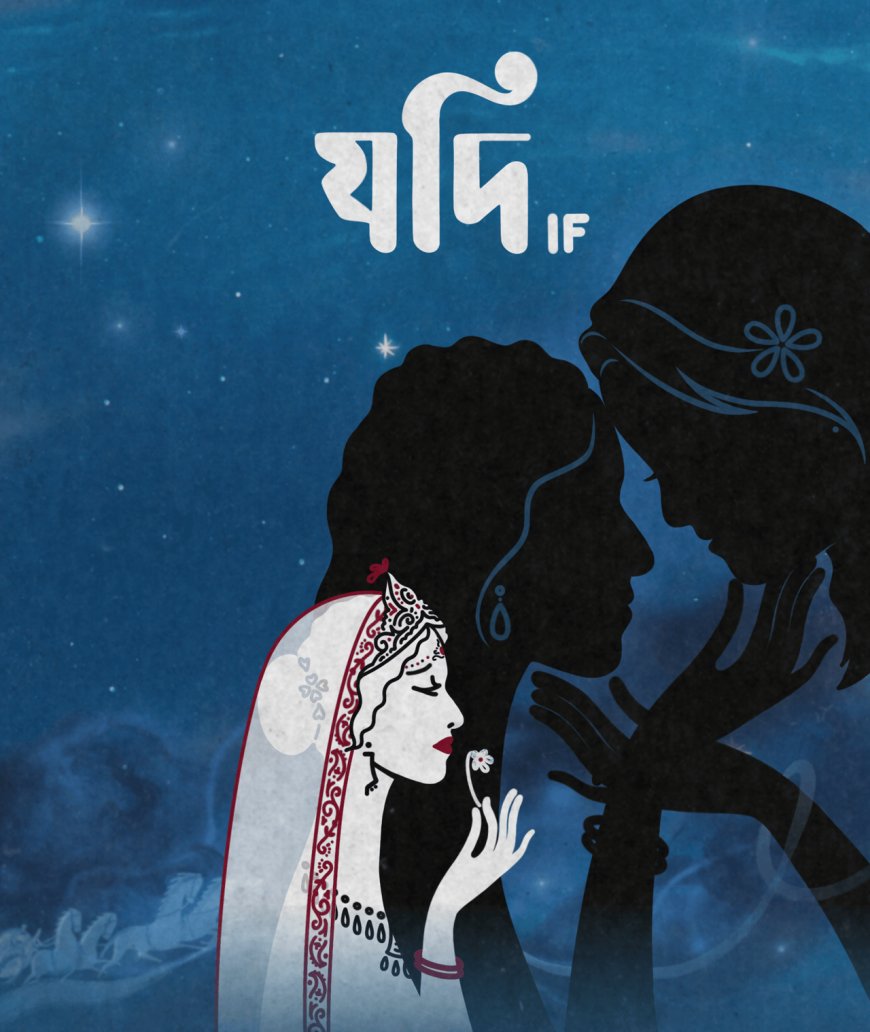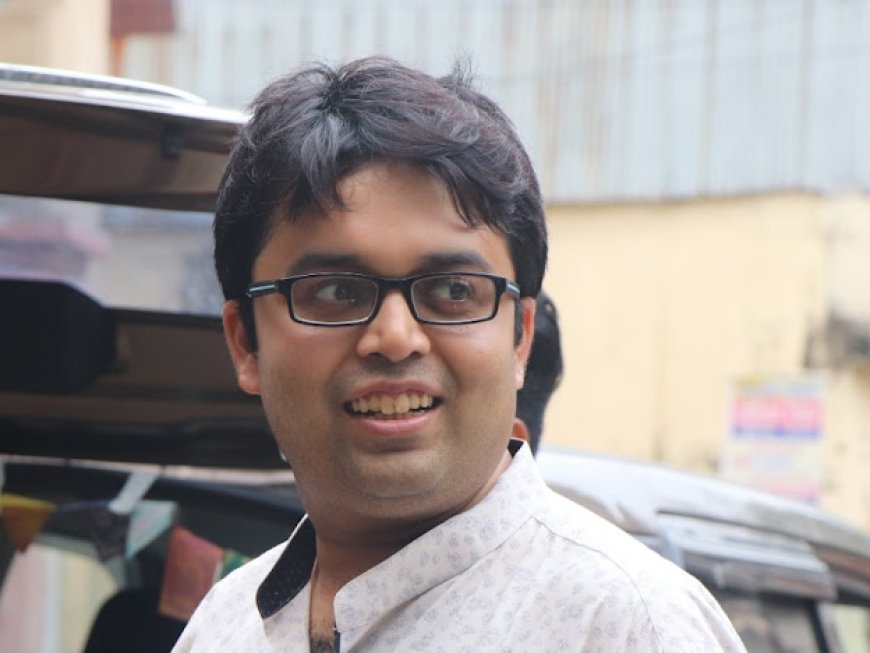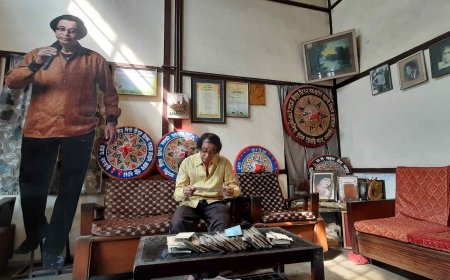Tathagata Ghosh steps into the delicate area of a strange marriage in "IF"
Dr. Shoma A. Chatterji provides an interview-based review of a beautiful film "IF".
Tathagata Ghosh is a young, talented and very prolific short-film maker. His films beginning with Doitto, had a successful run across film festivals in India and abroad. Miss Man is about a young man who feels he is a woman trapped in a man’s body and is gay. Ghosh began his film making and writing career after a Diploma in Writing for Film and Television from Vancouver Film School, Canada. After working in films and television since 2011, he decided to go “independent” and began to write, produce and direct his own films. His Dhulo (Scapegoat) was already screened at around seven film festivals in India and beyond. His other films are The Meat (2020), The Scapegoat (2021), Footprints (2023), and If (2024).
Ghosh seems to have reached the pinnacle of success as an internationally celebrated filmmaker with his new film If was premiered the BFI Flare: London LGBTQIA+ Film Festival. The film portrays the struggles of an apparently “normal” lesbian couple where the female partner turns out to be a closeted lesbian with a relationship with a young woman. The film also tracks the healing potential and the support of a mother's love. The film sheds light on the challenges faced by queer individuals, specially when a ‘normal’ couple is married only to discover that one of them has alternative sexual preferences, or, rather, loves a partner of the same sex. Ghosh was specially invited by the British Council as one of the international filmmakers at the 38th BFI Flare: London LGBTQIA+ Film Festival that was recently held in London. Ghosh’s ‘If’ had its world premiere at this film festival.
Jaya and Fatima, two women in love, are separated because of Jaya's marriage arranged by her conservative father. Helpless, Jaya is about to give up, when life suddenly brings her to a strange crossroad. The husband is a soft, understanding husband who is confused with his newly wedded wife’s indifference to sex. Jaya’s mother however, is sympathetic with the daughter’s preferences but can only stand beside and watch as her daughter walks out of this ‘abnormal’ marriage to seek happiness with Fatima.
Says Ghosh about the film, “For me, the film is about relationships more than anything else. I simply wanted to create a feeling of love and loss within the audience. I have grown up watching films of Rituparno Ghosh and this film is in that direction I can say. Films like "Unishe April", "Raincoat", "Abohoman" or "Memories in March" or even Aparna Sen's "Paromitar Ekdin" were my major inspirations. I wanted to build that world I have seen around me- a middle class Bengali household, the characters in them. I wanted the film to feel like a Bengali short story- the ones I have grown up reading. Writings of Pratibha Basu, Moti Nandy, Sunil Ganguly among others have always created a huge impact on me. This film is for the souls who have loved and lost and gone through that feeling of helplessness when our loved ones move away from us. So that was my motivation and inspiration I can say.”
Ghosh goes on to say, “Finding shoulders to lean on to at difficult times are rare. The bond that Swapna and Jaya shared as mother-daughter was even rarer. Also, this scene was fun to shoot as I have grown up watching dining table conversations with the actors relishing the food in Satyajit Ray's films. So it's safe to say that in a way this scene was my homage to my master.”
Jodi meaning “If” is a 26-minute short film which presents a short, subtle but very powerful film on love between two young women still looked down upon by the urban middle class to which these two young women, Jaya and Fatima belong. Jaya is a typically middle-class young girl who is secretly in love with Fatima, a Muslim young girl who lives a free life, smoking and drinking and liberated and not constrained by old values like Jaya is.
The images, often captured in close-up, and middle close-up,of Jaya’s husband shaving in his mirror, or, a bit awed when he finds his newly married bride chooses to sleep on the floor instead of sleeping beside him, Jaya in bridal finery without the coyness and good cheer a bride is expected to wear, and switches to the two young women enjoying their company like two free birds, without a care in the world are beautiful. We also capture Jaya’s worried mother Swapna in a close-up of her sad face, torn between her husband’s traditional old-school mindset and her own acceptance of her daughter’s choice is telling. A surreal scene of Jaya and Fatima laughing together, hand held firmly, taking a rise on a decorated, horse-drawn Victoria (buggy) laughing away and feeling not only happy but also free.
Says Tathagara, “If explores the hidden and well-known bits and slices of lives lived by the Bengali middle-class based on characters I have known and seen and watched their pain vicariously. I remember the case of a young friend of mine who was married off by force even when Section 377 was in place. But beyond this, cases of people with alternative sexual preferences being ostracized from their families and by the society at large are on the constant rise and these stories remained with me and kept disturbing me till I decided to put it across on screen.” He goes on to add, “these personal experiences of friends I have known quite well has changed me not only as a person but also as a filmmaker with a powerful purpose to use film as my way of responding to this ostracism. It has helped me to understand the pain of non-acceptance and rejection by your own people and has shaped my identity as a more feeling, empathetic and kind person.”
In another interview he said, “Through this film, I aspired to open a dialogue of social acceptance to relationships like that of Jaya and Fatima because I understand that cinema is a very powerful medium to make an impact on the audience and to reach out to more and more people through the film. I think the England screenings will go a long way in beginning a dialogue.”
However, as a viewer, I felt no less sad about the predicament of the husband (Bimal Giri) who turns victim of his own innocence. He feels the shock but tries his best to suppress his feelings of not knowing what hit him. The two very young actors playing Jaya and Fatima as excellent and quite natural, an added quality as they seem to be very uncommon faces on the large or small screen.
Ghosh deals with quite radical subjects with an agenda cleverly woven into the script but his gift is subtlety of his treatment. In If, the quiet husband gets audience sympathy because he reads his wife’s cold nature as a reaction of having to live with her mother-in-law. In one scene, we find him looking for a separate flat from an elderly friend. Whether he is looking for a flat to move in with his wife, or, whether he wants to move out himself, is not very clear. Behind his back, Jaya is dying to walk out of the marriage and join Fatima forever. The acting by the entire cast keeps the rhythm of the low-key treatment which brings out the complications of the story in an understated manner which makes the agenda all that more powerful.
Asked whether he believes that every film should have a social agenda, Ghosh says, “It should not be deliberate. All works of art are political. There is politics in everything. We are social creatures. Society shapes us and inspires us in our everyday life. Sometimes knowingly and sometimes, it remains unknown to us. So, social themes just crawl into your writing. Especially in today's time, when there is so much unrest all around us, one cannot help but speak about these hard times through one’s work. I feel art should reflect the time when it is created. It does not always have to be serious. It can be a comedy, but it should be rooted in contemporary times.”
But If is not the first film to deal with a married couple forced to deal with one of the partners being gay. In 2022, Phir Kabhi (The Way We Are) marked the directorial debut of Nihit Bhave. It is a short film featuring two brilliant actors, Manav Kaul as the husband and Amruta Prakash as the wife. They are not given any names in the film as the stories could be as much the story of similar couples as it is theirs.
Nihit Bhave, who had also written the story says, "When I decided to make a short film, I knew that it had to tackle the issue of belonging to the gay community in India. I identify as a gay man, and I needed to talk about men in India who do not have the vocabulary to come out of the closet, let alone live their authentic lives. As I started writing the film, I realised that a good foil to my male protagonist would be a woman who has suppressed all her needs, desires and wishes. In my opinion, the experience of being a woman and being in a married relationship with a closeted gay man has a lot of overlaps in a society as restrictive as India. An introvert myself, I have also often sacrificed a lot to avoid confrontation of any kind, so I knew that I had to marry these issues in The Way We Are." In Hindi, the film is titled Phir Kabhi.
What's Your Reaction?







